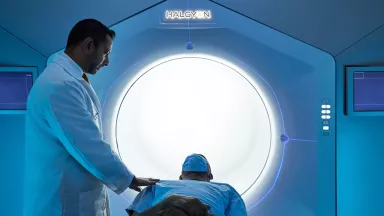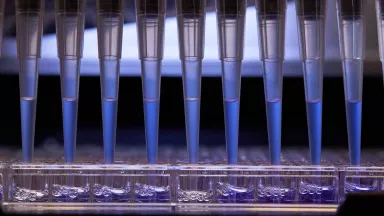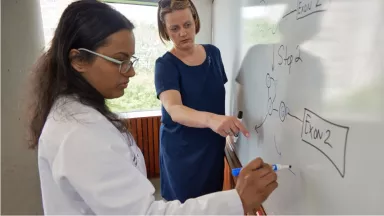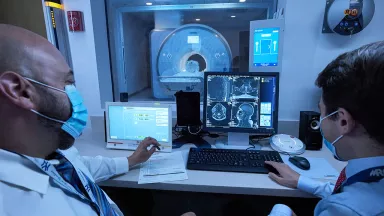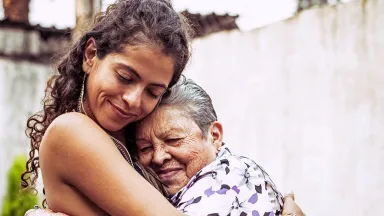CAR T-Cell Therapy
Receive the most up-to-date therapies for hard-to-treat lymphoma and other blood cancers at the world-renowned Montefiore Einstein Comprehensive Cancer Center. CAR T-cell therapy modifies a patient’s own immune cells to have a heightened ability to identify and eliminate cancer cells. As one of the country’s leading cancer research institutions, we were instrumental in studying CAR T-cell therapy and helping this groundbreaking treatment receive Food and Drug Administration (FDA) approval. You can rely on our experts to bring you the most advanced therapies, promising new treatments and hope for cancers once considered incurable.
We are advancing the science of cellular therapies and improving the treatments for our patients in the New York region and beyond.
Transforming Immune Cells into Powerful Cancer Fighters
Putting patients first includes being at the forefront of research breakthroughs like CAR T-cell therapy. Our longstanding leadership in research has allowed us to offer patients CAR T-cell therapy before many other institutions.
The science behind CAR T-cell therapy has enabled us to remove your immune cells, re-program them and transfer them back into you—customized to eliminate your specific cancer. So far, this cancer treatment is approved for two types of cancers, relapsed refractory lymphoma and mantle cell lymphoma. We’re committed to unleashing the potential of CAR T-cells against all cancers.
Our commitment to science and clinical trials continuously leads to industry firsts. Our most recent “firsts” for CAR T-cell therapy are for cancers considered incurable. We’re currently conducting over 300 clinical trials looking for the next life-saving breakthrough. We know how fast cancer moves; our goal is to keep moving faster.
Top-Rated Research and Recognition
We are one of only a few Centers of Excellence for CAR T-cell therapy in the U.S., accredited by the Foundation for Accreditation of Cellular Therapy (FACT). This distinction speaks to our rigorous understanding of clinical research and laboratory procedures.
At our NCI-designated Comprehensive Cancer Center, you get a level of experience that’s unmatched. Our commitment to science and clinical trials has helped us be among the first cancer centers in the entire country to:
- Include people with cancer and HIV in clinical research
- Treat B-Cell maturation antigen (BCMA) multiple myeloma with CAR T-cells
- Treat brain lymphoma with CAR T-cells
- Treat relapsed, refractory lymphoma with CAR T-cells
- Use TECARTUS CAR T-cell therapy for mantle cell lymphoma
We are continuing our relentless pursuit of treatments and cures. We’re working to advance the science of immunotherapy and CAR T-cells so that patients like you have even more treatment options for all types of cancer, now and in the future.
A Dedicated CAR T-Cell Therapy Team
At Montefiore Einstein Comprehensive Cancer Center, you’ll have a team of compassionate caregivers and world-renowned experts who specialize in research and treatment, not only for CAR T-cell therapy but also in immunology, stem cell transplants, and blood and bone marrow cancers. Your care will be personalized so you can feel your best—physically and emotionally—and have the best quality of life through your cancer journey.
What Is CAR T-Cell Therapy?
CAR T-cell therapy uses some of your body’s immune cells (T cells) to eliminate cancer cells.
Doctors remove the T cells from your blood, re-program them in a lab and return them back to your body. Once in your body, they bind to cancer cells and eliminate them. Your treatment is essentially a customized medicine made from your own cells.
Types of CAR T-Cell Therapy
Doctors turn to CAR T-cell therapy for certain cancers when other treatments have not worked well. Specific types of the therapy include:
- Axicabtagene ciloleucel, or axi-cel (Yescarta), a treatment for certain types of Non-Hodgkin lymphoma when other treatment didn’t work, or your cancer returned.
- Brexucabtagene autocel, or brexu-cel (Tecartus), a treatment for mantle cell lymphoma and adult acute lymphoblastic leukemia that progressed while you were receiving another treatment or after your treatment.
- Ciltacabtegene autoleucel, or cilta-cel (Carvykti), a treatment for adults with multiple myeloma that has returned after treatment or is resistant to treatment.
- Idecabtagene vicleucel, or ide-cel (Abecma), a treatment for multiple myeloma after other treatments have not worked or have stopped working.
- Lisocabtagene maraleucel, or liso-cel (Breyanzi), a treatment for large B-cell lymphoma when at least two other treatments haven’t worked or have stopped working.
- Tisagenlecleucel, or tisa-cel (Kymriah), a treatment for people with non-Hodgkin’s lymphoma that has returned after treatment or is not responding after at least two other kinds of treatment. It is also approved for people up to age 25 who have acute lymphoblastic leukemia that has returned after treatment or has not gone away after treatment.
CAR T-Cell Therapy: What To Expect
In many cases, CAR T-cell therapy can be very effective against cancer, even when other treatments are not. When you undergo this therapy:
- Doctors collect your blood and run it through a machine that separates your T cells from the other components of your blood.
- Medical staff send the cells to a lab, where technicians insert a gene for chimeric antigen receptor (CAR) into the T cells and then grow millions of CAR T cells from your sample.
- After you undergo a few days of chemotherapy, doctors will return the altered T cells into your blood via a tube called a catheter; a process called an infusion.
- The genetically modified T cells recognize cancer cells that remain in your body and eliminate them.
Side Effects
There are many potential side effects of CAR T-cell treatment. Some of these can be serious, even life-threatening. Because of this concern, we watch you closely in the days and weeks after your infusion. In some cases, you may need to be hospitalized. However, even if you’re not hospitalized, we ask that you stay close to the Cancer Center so that we can monitor you.
We’ll tell you what to watch for and be at your side every step of the way to help you manage symptoms and side effects of your treatment.
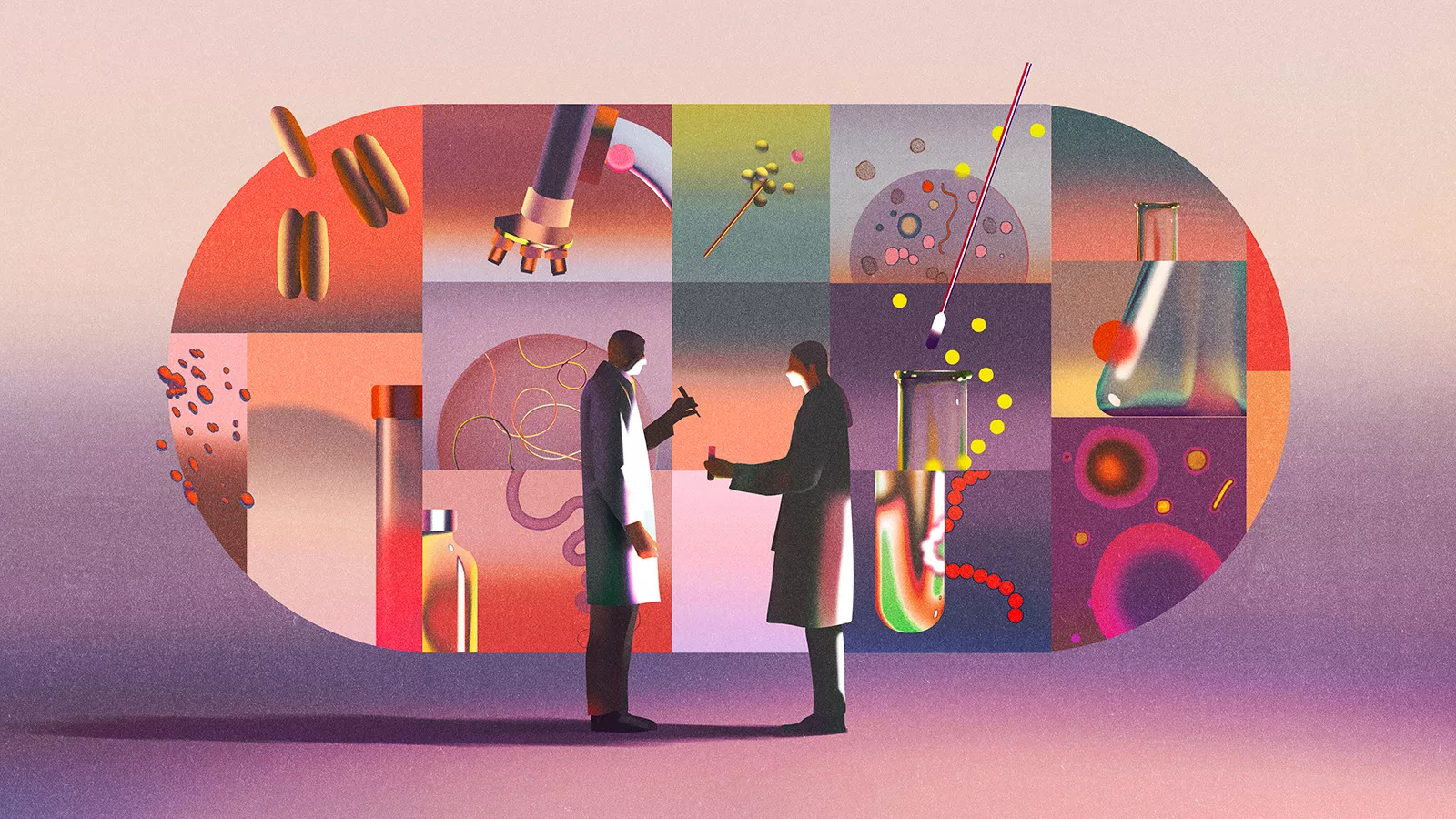
Cancer Clinical Trials
- Blood & Bone Marrow Cancers
- Brain, Spine & Central Nervous System Cancers
- Breast Cancer
- Childhood Cancers
- Endocrine System Cancers
- Gastrointestinal (GI) Cancers
- Genitourinary (GU) & Urologic Cancers
- Gynecologic Cancers
- Head & Neck Cancers
- Kaposi Sarcoma & AIDS-Related Cancers
- Lung & Chest Cancers
- Prostate Cancer
- Sarcomas
- Skin Cancer


